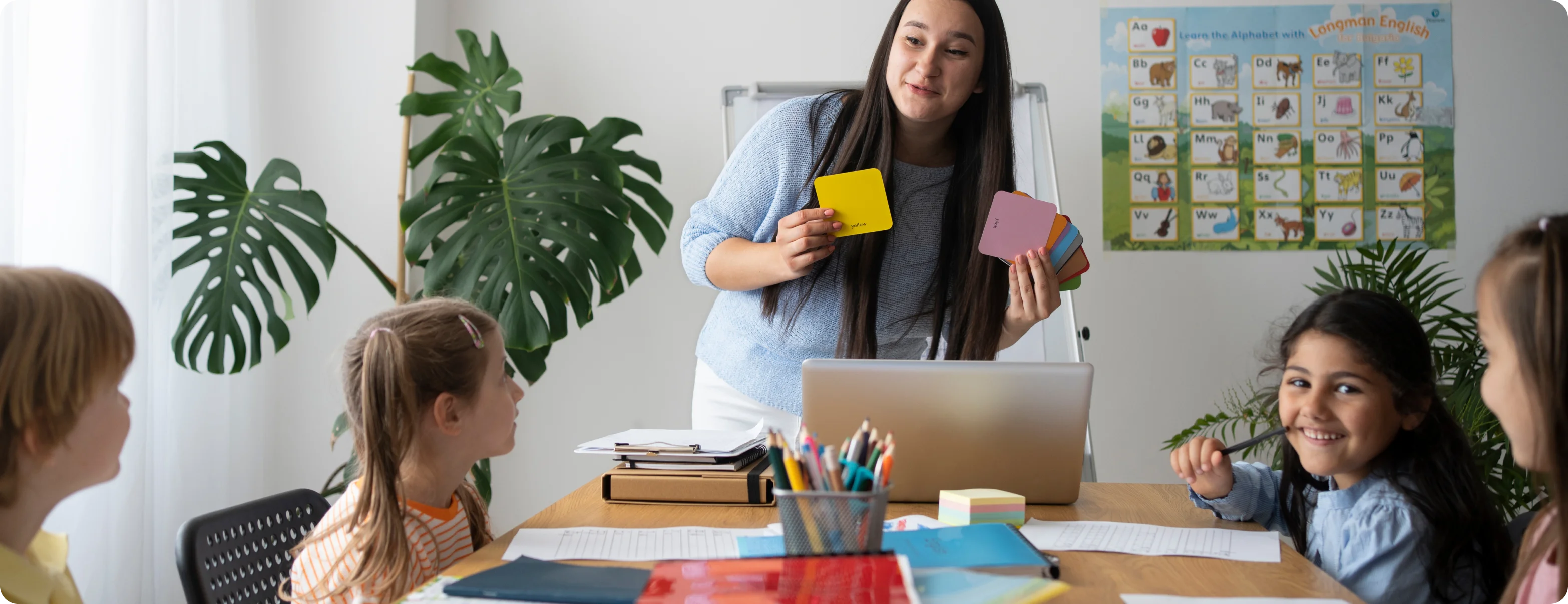The Whole-Child Approach: Supporting Kids Beyond Their Diagnosis

Stephanie Tsapakis
|
Published on Apr 20, 2022 · 3 min read


Stephanie Tsapakis
|
Published on Apr 20, 2022 · 3 min read

One of the biggest challenges a teacher with many students can face is the limited amount of time there is to get to know each student beyond the work they produce in the classroom. Even the teachers with the best intentions can become buried underneath the pressure to make sure kids are meeting the curriculum standards and hitting benchmarks.
There seems to be limited time for chit chat about favorite bands, sporting events or favorite subjects, let alone enough time to see past our students' academic skills and get a full picture of the person they are; no matter how much rapport we intend to build into our classroom culture.
So what happens when we have a student in our classroom with a learning difference like dyslexia? While not intentional, the dyslexia can become the focus of what we see while other important pieces of the child fade into the background. We don't want to leave that child feeling lost or unsupported and we don't want their parent to feel their child isn't getting the focus or attention that's needed in order to help them make effective progress.
You can insert any learning difference or challenging student behavior into this concept and the same thing tends to happen:
The child gets put into a figurative box where their learning difference takes front and center.
It gets taken into consideration when planning curriculum and discussed at team meetings.
It stands to reason that many of the children who receive specialized instruction may have also spent a considerable amount of time feeling down on themselves since they may struggle to learn in a traditional way like their friends and peers.
It’s hard for a child to see the bigger picture even when we as adults who care about them know that their learning difference can actually become a strength. Kids who navigate learning differences learn to be resilient in the face of adversity, can have a deeper sense of empathy for others, and often learn to think more creatively. A kid may have dyslexia but may also be an excellent math student, be in an advanced ballet class, have a great sense of humor, or know all the words to their favorite songs .
Dyslexia is only a small fraction of his or her identity even if it plays a big role in their confidence level when tasked with reading or spelling. It's part of who that child is, but it doesn't define them and if you asked their parents to talk about what makes them unique, it's probably low on the list of what they'd say.
The more we can take a step outside of the context of the classroom and feed into what makes a child feel confident in themselves, the more we can motivate them to persevere through whatever academic challenges they're currently tackling. These kids need to be reminded frequently of the progress they're making no matter how small the gains may be be since it might be the first time they've actually felt successful with reading and writing.
One way to avoid seeing our students as only their learning difference is to simply find out what they’re interested in and consider for a moment that reading and writing are not the end-all be-all. It's not rocket science of course, but it can go a very long way. As you already know, some kids will open right up and tell you what they've been working on outside of the classroom; you need only to ask. With other kiddos, it may take a lot more time and detective work to uncover their interests and how these are often also their strengths.
At the end of the day, kids with even the most complex of learning differences are so much more than the goals on their IEPs or the summary on their 504 plan. It's our responsibility as the grownups in their lives who know their potential to continue to encourage them until we can all see beyond their learning difference and instead see them as the unique and complex individuals that they are.
Looking for personalized support for your child's learning journey?
Our tutoring and dyslexia intervention services are tailored to students with learning differences. Whether it's reading, writing, or other challenges, our team offers one-on-one guidance.
Start with a consultation!Stay updated with our latest blog posts.
Cart